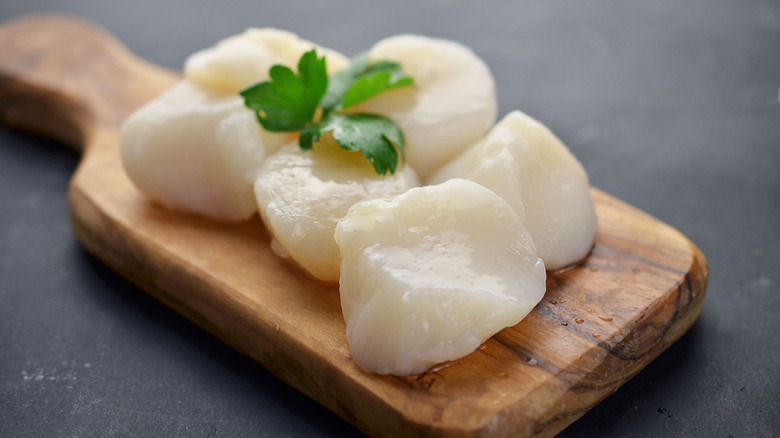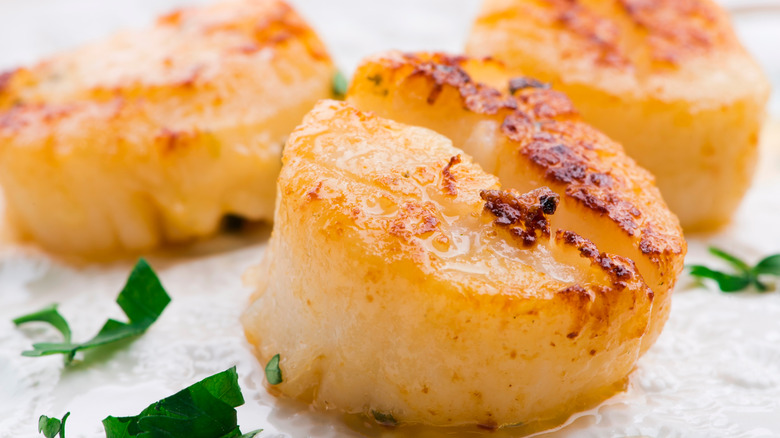The Real Reason Scallops Sometimes Taste Like Soap
Scallops are often highly regarded as prized morsels from the sea, but in some circumstances they can taste downright soapy. Unlike the soapy flavor that many people can attribute to being inherent in fresh cilantro, there's an external reason why some types of scallops take on this characteristic (and it has to do with the way they can be prepped for a longer shelf-life). Thankfully, knowing the distinction between different types of this seafood delicacy can make it easy to avoid ending up with one that has an unwanted taste. It's also good to know that, depending on where you live and shop for seafood, the scallop selection may vary. But even then, there are steps you can take to avoid this less than desirable outcome.
As a background, Maine Lobster Now explains the distinction between a few types you may encounter, including sea vs. bay, diver vs. day boat, and wet vs. dry scallops. Regarding sea, bay, diver, and day boat scallops, the definition is all in the name. Sea and bay scallops refer to the location where they are found, whereas diver and day boat scallops get their name based on how they are fished, says the article. It follows that wet and dry scallops get their moniker based on their physical characteristics.
Although seafood is wet by nature, wet scallops are mollusks that have been soaked in a phosphate solution during processing — and that is what can sometimes produce the unwanted soapy flavor. Meanwhile, The Kitchn explains that dry scallops aren't soaked prior to packaging, maintaining their natural flavor and physical qualities — so the dry version may be a better choice when purchasing scallops to cook.
Why are wet scallops not as desirable?
Going further into the explanation, Bon Appétit explains that wet scallops are left in a sodium tripolyphosphate whitening solution to preserve them during transport. Fine Cooking points out that soaking scallops in this liquid also adds up to 30% extra weight, so you're not actually getting as much from your serving. If you only have access to wet scallops, Bon Appétit recommends using a paper towel to absorb the excess liquid before cooking, which may prevent some of the unwanted taste.
Aside from the extra water and chemical flavors, wet scallops also don't behave quite the same for cooking. Fine Cooking explains that as a result of the extra water, wet scallops tend to steam in the pan instead of developing a crispy golden sear on the outside. Although that issue can mostly be remedied by drying the wet scallops off before cooking, the soapy flavor will still remain. To resolve matters, The Splendid Table recommends soaking wet scallops in a mixture consisting of one quart of cold water, a quarter-cup of lemon juice, and two tablespoons of salt. According to the source, if you leave the scallops in this bath for a half-hour, the soapy taste significantly reduces.
The Kitchn notes that scallop prices can fluctuate widely and wet scallops are still the cheapest due to their longer storage capacity, so if budget is an issue, just take the steps above to ensure a quality dish every time. However, if you're able to source either, it's probably worth it to pay a bit more for dry scallops to get the full flavor that you actually want to taste.

